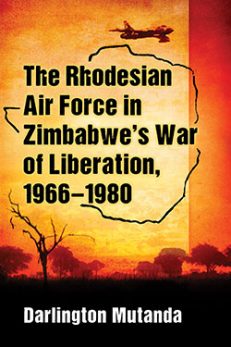The Rhodesian Air Force in Zimbabwe’s War of Liberation, 1966–1980
$39.95
In stock
About the Book
This book evaluates the development of the Rhodesian Air Force during the Second Chimurenga or Bush War (1966–1980). Airpower in irregular conflict is effective at the tactical level because guerrilla warfare is not a purely military conflict. The Rhodesian Air Force was deployed in a war-winning versus a supporting role as a result of the shortage of manpower to deal with insurgency, and almost all units of the Rhodesian Security Forces depended on its tactical effectiveness.
Technical challenges faced by the Air Force, combined with the rate of guerrilla infiltration and the misuse of airpower to bomb guerrilla bases in neighboring countries largely negated the success of airpower.
About the Author(s)
Bibliographic Details
Darlington Mutanda
Format: softcover (6 x 9)
Pages: 240
Bibliographic Info: notes, bibliography, index
Copyright Date: 2017
pISBN: 978-1-4766-6620-4
eISBN: 978-1-4766-2577-5
Imprint: McFarland
Table of Contents
Table of Contents
Acknowledgments vi
Preface 1
Introduction 3
Abbreviations and Acronyms 9
1 Background to the Liberation War in Zimbabwe 13
2 Conceptualizing the Development of Air Power as a War Asset 31
3 The Establishment of the Rhodesian Air Force 47
4 The Development of the Air Force During the Interwar Period 71
5 The Impact of the Rhodesian Air Force During the Second Chimurenga 95
6 Guerrilla Counterstrategies to RhAF Operations 112
7 Challenges Faced by the Rhodesian Air Force During the Second Chimurenga 122
8 Challenging “Air Supremacy” from Outside: Analyzing the Feasibility of ZPRA’s Conventional Plan 143
9 The Effects of Civilian Bombing on Guerrilla Strategy 158
10 The Significance of Air Power in Guerrilla Warfare: An Analysis 170
Conclusion 186
Chapter Notes 193
Bibliography 217
Index 229






